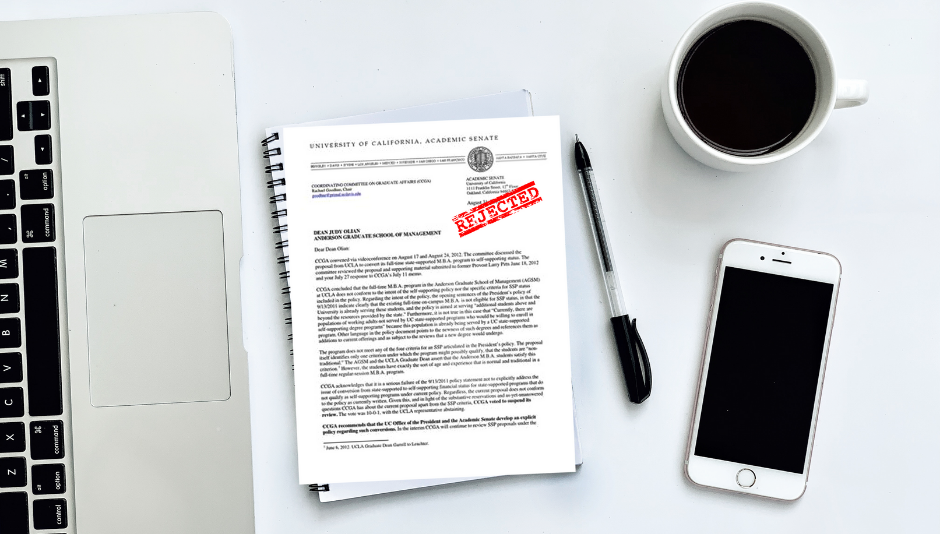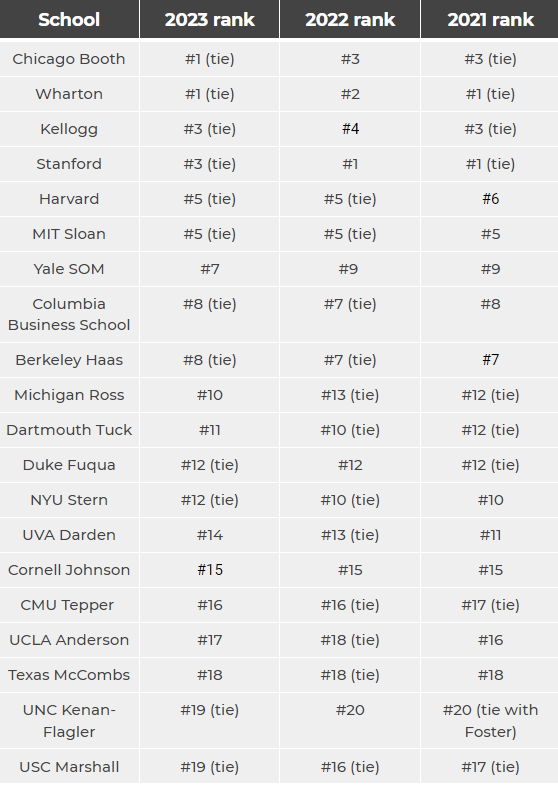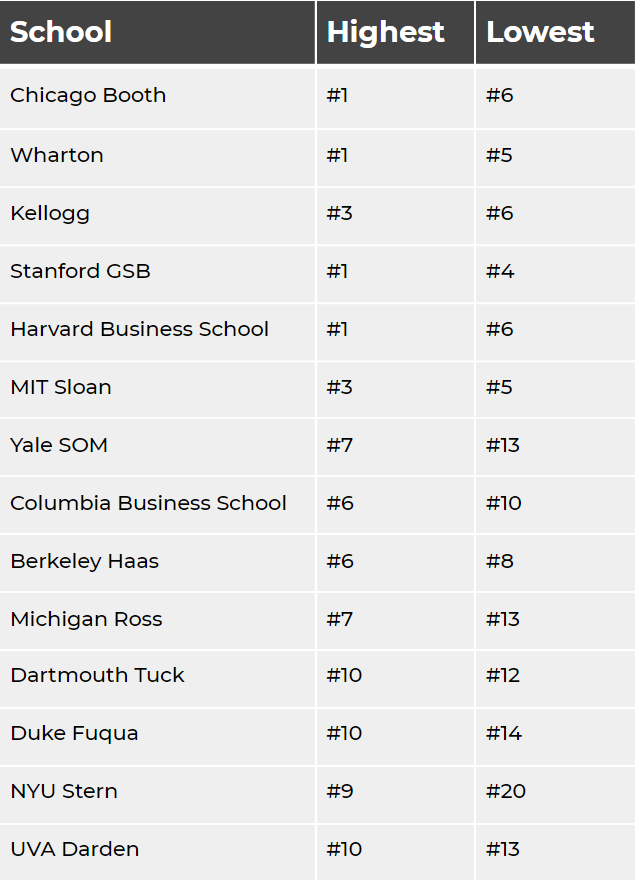Events & Promotions
|
|

GMAT Club Daily Prep
Thank you for using the timer - this advanced tool can estimate your performance and suggest more practice questions. We have subscribed you to Daily Prep Questions via email.
Customized
for You
Track
Your Progress
Practice
Pays
Not interested in getting valuable practice questions and articles delivered to your email? No problem, unsubscribe here.
- Nov 20
07:30 AM PST
-08:30 AM PST
Learn what truly sets the UC Riverside MBA apart and how it helps in your professional growth - Nov 20
10:00 AM EST
-10:30 AM EST
If you’re applying to Columbia, NYU Stern, or Yale SOM, you need more than strong stats. Each school defines “leadership” differently, and your essays must reflect that. Join Sia Admissions founder, Susan Berishaj on November 20th - Nov 20
09:00 PM IST
-10:00 PM IST
Join our free expert-led Essay Workshops to discover how to choose impactful stories, highlight your core values, and align your background with each school’s distinct culture, making every word truly count. - Nov 12
01:00 PM EST
-11:59 PM EST
Get expert MBA strategy, instant essay feedback, and personalized advice on your entire application. Join My Admit Coach, the AI-powered MBA admissions platform built on 10K+ successful application docs for HBS, Stanford GSB, MIT and other top programs. - Nov 19
09:00 AM PST
-10:00 AM PST
What’s in it for you- Live Profile Evaluation Chat Session with Jenifer Turtschnow, CEO ARINGO. Come with your details prepared and ARINGO will share insights! Pre-MBA Role/Industry, YOE, Exam Score, C/GPA, ECs Post-MBA Role/ Industry & School List. - Nov 19
10:00 AM EST
-01:00 PM EST
Get expert MBA strategy, instant essay feedback, and personalized advice on your entire application. Join My Admit Coach, the AI-powered MBA admissions platform built on 10K+ successful application docs for HBS, Stanford GSB, MIT and other top programs. - Nov 19
11:00 AM PST
-12:00 PM PST
Round 2 is here — and it’s your chance to make your MBA dream happen! Join GMAT Club’s LIVE discussion with two top experts from The Red Pen, Gunjan Jhunjhunwala and Natasha Mankikar, as we break down everything you need to know - Nov 21
08:30 AM EST
-09:15 AM EST
Get the inside scoop on what makes Emory’s Goizueta Business School great, learn how you can present a strong MBA application, and connect with an Admissions Director to get your questions answered. - Nov 21
09:30 PM IST
-10:30 PM IST
Learn how to craft powerful, authentic essays by mastering the 3 “WHYs” every top MBA program looks for: Why MBA, Why Now, and Why This School. - Nov 24
08:00 PM PST
-09:00 PM PST
Inquire for a free profile evaluation and guarantee statement for possible admits and scholarships!
PersonalMBACoach
 Expert
Expert
Personal MBA Coach Founder
Joined: 11 Sep 2010
Last visit: 19 Nov 2025
Posts: 3,756
Own Kudos:
Given Kudos: 11
Status:Boutique MBA Admissions Consulting from a Wharton graduate - Helping applicants get into top global business schools since 2008
Affiliations: Wharton, MIT
Location: United States (NY)
Overall Client Admit Rate: 96%
Expert reply
Kudos
Bookmarks
| FROM Personal MBA Coach: Personal MBA Coach’s M7 Essay Analysis E-Book |
|
Are you applying to any of the M7 programs in round 3? If you have not done so already, it is time to begin the essay-writing process. Personal MBA Coach gets clients every year in round 3. While the numbers are smaller, we can qualify you and figure out if you may be a strong round 3 candidate. Given that round 3 is challenging, it is particularly crucial that you are taking the time to develop compelling essays. Determining how to approach your essay prompts can be one of the hardest parts of the process. Fortunately, Personal MBA Coach is here to guide you. Available for free to all Personal MBA Coach customers and newsletter subscribers, our M7 Essay Analysis e-book features proprietary guidance on how to tackle the 2021-2022 application essays for ALL M7 business schools including Harvard Business School, Wharton, Columbia Business School, Chicago Booth, Kellogg, Stanford GSB, and MIT Sloan.  Get insider tips on what admission committee members are looking for in each essay from our founder, a Wharton MBA and MIT graduate on the AIGAC Board of Directors with 15 years of admissions consulting experience. Our M7 Essay Analysis e-book also includes insights on handling the MBA application extras, such as optional questions, video interviews and reapplicant essays. To download, click here and sign up for our newsletter to receive both the M7 Essay Analysis e-book and weekly MBA application tips. Interested in exploring programs outside of the M7 schools? Download Personal MBA Coach’s Beyond the M7 Essay Analysis e-book to get insider advice on tackling the essay questions for seven top business schools outside of the M7s including Berkeley Haas, Duke Fuqua, Michigan Ross, NYU Stern, UCLA Anderson, UVA Darden, and Yale SOM. For those who are still building their target school list, keep in mind that, while having a strong profile is key, getting accepted to business school often comes down to a numbers game. For this reason, Personal MBA Coach clients apply to 5 to 8 schools on average. For some candidates, this means selecting target programs from a range of tiers. For others, this means choosing multiple M7 business schools.  Naturally, a candidate’s school list must align with their profile. Along with having a broad list, make sure that it is reasonable based on your undergraduate GPA, GMAT/GRE/EA score, and professional work experience. Whether you are still deciding which schools to apply to or are ready to begin writing your essays, Personal MBA Coach is here to help! Via our Comprehensive MBA Packages, we will work through each step of the application process until you decide which business school admission offer to accept. About Personal MBA Coach: Founded by a Wharton MBA and MIT Sloan graduate who sits on the Association of International Graduate Admissions Consultants Board of Directors, Personal MBA Coach has been guiding clients for 15 years and is consistently ranked #1 or #2 by leading sources including Poets&Quants. We help clients with all aspects of the MBA application process including early planning, GMAT/GRE/EA tutoring, application strategy, school selection, essay editing, and mock interviews. Our team includes former M7 admissions directors and former M7 admissions interviewers. Last cycle, our clients earned more than $6.5M in scholarships! The post Personal MBA Coach’s M7 Essay Analysis E-Book appeared first on Personal MBA Coach. |
This Blog post was imported into the forum automatically. We hope you found it helpful. Please use the Kudos button if you did, or please PM/DM me if you found it disruptive and I will take care of it.
-BB
PersonalMBACoach
 Expert
Expert
Personal MBA Coach Founder
Joined: 11 Sep 2010
Last visit: 19 Nov 2025
Posts: 3,756
Own Kudos:
Given Kudos: 11
Status:Boutique MBA Admissions Consulting from a Wharton graduate - Helping applicants get into top global business schools since 2008
Affiliations: Wharton, MIT
Location: United States (NY)
Overall Client Admit Rate: 96%
Expert reply
Kudos
Bookmarks
| FROM Personal MBA Coach: How to Think About Your MBA Goals |
|
“What do you want to do after you graduate from business school?” This seemingly simple question actually can be one of the most difficult to answer eloquently. With a few exceptions, articulating your post-MBA goals is a crucial part of the application process. Most business schools want to know how you will make the world better when you leave their campuses and what your unique mark will be. For those planning to apply to business school in September 2022, Personal MBA Coach clients are already getting started on round 1 applications. We advise our clients to begin the application process by thinking through their MBA goals and developing an MBA resume. As you begin to reflect upon and articulate your goals, consider these six key pieces of advice. 1) Be decisive While no one will hold you to what you write in your MBA application essays, you should generally be decisive when discussing your MBA career goals. Pick a set of goals and run with them. Candidates should not expect to “find themselves” in business school, though in reality this often happens. If you do have multiple ideas in mind, some schools are comfortable with understanding your thought process and decision-making criteria (Personal MBA Coach discusses this with our clients on a case-by-case basis). Most schools, however, will want candidates to have clear plans laid out before they arrive on campus. 2) Be consistent Your goals should be YOUR goals. This means they should not vary from one MBA application to the next. Candidates can lose credibility by changing their goals to please the audience, and it can be difficult to articulate true passion (see point 6 below) for goals that are not genuine.  3) Develop career goals that are ambitious, yet attainable As valuable as an MBA is, you likely will not be running a department on the first day out of business school. Do your research and figure out what positions are realistic for you. You can start by looking at career postings from companies in your target industry. Pay close attention to required industry experience, particularly if you are considering changing careers. This will give you a good idea of what role you might be qualified for immediately post-MBA and will allow you to specifically note which position you hope to secure after school. 4) Consider a logical career pathway With your attainable role as a launching point, set out an ambitious path and long-term goal for yourself. This long-term goal is your opportunity to dream big and show how you will drive change in your future industry. It should flow logically (though not necessarily obviously) from your short-term goals. While you do not need to rise through the standard career ranks at your target firm (though it is perfectly fine if this is your goal), your career path should make sense to the reader and allow you to leverage the skills you will develop during your MBA and throughout your early post-MBA career. 5) Share how you will be unique Even if you have a very common career goal, such as becoming a management consultant or an investment banker, you want to share how you will make your unique mark. Perhaps you intend to develop a specific area of expertise within the consulting industry or focus on a certain sector. You must go beyond simply stating the position you are hoping to achieve. Think deeper and share your vision for improving your chosen field or company.  6) Articulate passion A strong career goals essay will communicate passion for your future field. This does not mean that you need a long explanation for why you selected this career path. That said, as you provide the context and discuss your future, it should be clear to the reader that you are excited about this profession. Sharing what drove you to this field and identifying current innovations that particularly intrigue you are ways to show such passion. About Personal MBA Coach: Founded by a Wharton MBA and MIT Sloan graduate who sits on the Association of International Graduate Admissions Consultants Board of Directors, Personal MBA Coach has been guiding clients for 15 years and is consistently ranked #1 or #2 by leading sources including Poets&Quants. We help clients with all aspects of the MBA application process including early planning, GMAT/GRE/EA tutoring, application strategy, school selection, essay editing, and mock interviews. Our team includes former M7 admissions directors and former M7 admissions interviewers. Last cycle, our clients earned more than $6.5M in scholarships! The post How to Think About Your MBA Goals appeared first on Personal MBA Coach. |
This Blog post was imported into the forum automatically. We hope you found it helpful. Please use the Kudos button if you did, or please PM/DM me if you found it disruptive and I will take care of it.
-BB
PersonalMBACoach
 Expert
Expert
Personal MBA Coach Founder
Joined: 11 Sep 2010
Last visit: 19 Nov 2025
Posts: 3,756
Own Kudos:
Given Kudos: 11
Status:Boutique MBA Admissions Consulting from a Wharton graduate - Helping applicants get into top global business schools since 2008
Affiliations: Wharton, MIT
Location: United States (NY)
Overall Client Admit Rate: 96%
Expert reply
Kudos
Bookmarks
| FROM Personal MBA Coach: Personal MBA Coach’s Take on the 2022 Financial Times MBA Rankings |
|
The Financial Times recently released its 2022 MBA Rankings. Unlike last year’s Financial Times MBA rankings, which international business schools dominated, U.S. schools rose to the top this year. This shift is a reminder to pay attention to a school’s placement over the years, as rankings are always changing. While Wharton was among the business schools that chose not to compete in last year’s Financial Times MBA rankings, the school returned to assume the top position in this year’s rankings. Following close behind, Columbia Business School took the second spot and Harvard Business School took the third. Like Wharton, these two schools did not participate in last year’s rankings. Given the return of these top schools to the rankings, INSEAD dropped from first place to #4. In a minor change, Kellogg moved up slightly from #6 to #5. Stanford, which also did not compete last year, took #7. Chicago Booth and London Business School finished #8 and #9, respectively. Yale SOM closed out the top 10 in the Financial Times MBA rankings. While there are numerous strong programs outside of the U.S., 8 of the top 10 programs this year are U.S.-based. Part of this focus on U.S. business schools could be attributed to the high salary reports for U.S. MBA graduates. Additionally, international enrollment at U.S. schools is on the rise after these numbers took a large hit during the pandemic. Both trends may have contributed to the rise of U.S. programs in the latest Financial Times MBA rankings. While these rankings can help MBA hopefuls build their target school lists, Personal MBA Coach likes to remind candidates that rankings are not the be-all and end-all. Below, we have shared some of our top tips to keep in mind as you review MBA rankings. Need help determining which programs are right for you? Program selection is included in our Comprehensive Packages!  1) Look at MBA rankings to get an overview of the business school landscape. If you are in the early stages of your MBA application journey, rankings can be useful to get a general lay of the land. Use these rankings to see what schools are out there, where they are located, and how they compare to one another. 2) Review statistics as an initial guide. Statistics including acceptance rate, average undergraduate GPA, and average test scores of enrolled students will give you some strong benchmarking information. That said, these numbers should only be used as an initial guide since the whole applicant package is far more important. Plenty of applicants with GPAs or GMAT/GRE/EA scores below average are accepted every year while others with higher statistics are not. This disparity is why we encourage candidates to apply to a range of programs (ideally 5 to 8 schools). 3) Consider average ranking over the years. A school’s average ranking over time is important to consider when looking at MBA rankings. When you are applying to jobs down the road, recruiters likely will not know your school’s ranking when you applied, but they may look at its current standing. Therefore, it is worth evaluating how the schools you are interested in have placed over time. Have they consistently stayed in the top tiers, or has their placement fluctuated greatly? 4) Analyze general trends. While the latest Financial Times MBA rankings show Wharton, Columbia Business School, and Harvard Business School in the top three, other rankings scales are likely to show different results (see the latest U.S. News & World Report rankings and Bloomberg Businessweek rankings for reference). Of course, certain schools will consistently place in the top ten, but the general list will vary from source to source. Keeping this in mind, as mentioned with ranking over time, the general trend across different ranking sources is the most significant.  5) Notice how rankings vary from one industry to the next. While all MBA programs highlight strong general management education, each school has different areas of expertise. Thus it will be helpful to consider how schools perform in industry-specific rankings as well. Think about your MBA goals and check out rankings that pertain to these goals. Are you looking for help with school selection? Along with MBA rankings, there are many factors to consider when building your target school list. Download Personal MBA Coach’s free Decision Making Guide to get more tips on business school selection. School selection is part of our Comprehensive Packages. For those planning to apply to business school in September 2022, it is not too early to get started! Personal MBA Coach is already beginning to work with clients on round 1 MBA applications. About Personal MBA Coach: Founded by a Wharton MBA and MIT Sloan graduate who sits on the Association of International Graduate Admissions Consultants Board of Directors, Personal MBA Coach has been guiding clients for 15 years and is consistently ranked #1 or #2 by leading sources including Poets&Quants. We help clients with all aspects of the MBA application process including early planning, GMAT/GRE/EA tutoring, application strategy, school selection, essay editing, and mock interviews. Our team includes former M7 admissions directors and former M7 admissions interviewers. Last cycle, our clients earned more than $6.5M in scholarships! The post Personal MBA Coach’s Take on the 2022 Financial Times MBA Rankings appeared first on Personal MBA Coach. |
This Blog post was imported into the forum automatically. We hope you found it helpful. Please use the Kudos button if you did, or please PM/DM me if you found it disruptive and I will take care of it.
-BB












































